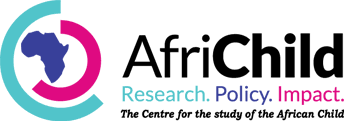What we do
Established in January 2013, the AfriChild Centre undertakes multidisciplinary research, evidence-based knowledge building, skills development and influences policy and practice for the wellbeing of the African child.
The Centre is promoted by ChildFund International – Uganda Office, the Ministry of Gender Labor and Social Development, Makerere University, Transcultural Psychosocial Organization (TPO), Uganda, United Nations Children’s Fund (UNICEF) and Columbia University.
The Centre fits squarely within the ensuing global initiative aimed at promoting learning, advocacy, and building human resources capacity to promote child protection. It also fits in the efforts pursued by the Uganda Government, civil society organizations (CSOs) and development partners in building an effective national response to children in adversity.
Most notably, this response is articulated in the Uganda National Action Plan for Orphans and Vulnerable Children (OVC), and the National Strategic Program Plan of Interventions (NSPPI 2), which underlines the importance of research and equipping the national workforce in the OVC sector with relevant knowledge and skills so as to build an effective and sustainable national response to children in adversity.
Research
We undertake both qualitative and quantitative research on a range of issues affecting the child such as health, education, care and protection using innovative tools and methodologies to provide empirical evidence that is used to influence policy and practice.
Policy
We use the evidence generated to advocate policy makers, CSOs and practitioners at both national and international levels on issues affecting the child.
Impact
Our researches are aimed at bringing meaningful change in the lives of children. We partner with practitioner CSOs to uptake our research findings and improve their programming approaches and methods.



